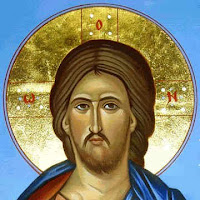Virginia Anglican Churches Respond to Ruling on Discovery
FOR IMMEDIATE RELEASE
April 25, 2008
CONTACT: Kelly Oliver (ext. 140) or
Caitlin Bozell (ext. 119) at (703) 683-5004
FAIRFAX , Va. (April 25, 2008) – The 11 Anglican churches being sued by The Episcopal Church and the Diocese of Virginia responded to the Fairfax County Circuit Court decision to open discovery around the Contracts Clause, congregational votes and related questions.
“Today’s Court ruling is part of the process which will prove that the 11 churches own their property and that they followed proper procedures when an overwhelming majority in each church voted to disaffiliate from The Episcopal Church and Diocese of Virginia,” said Jim Oakes, vice-chairman of the Anglican District of Virginia. The 11 churches being sued by The Episcopal Church are a part of ADV.
“Judge Randy Bellows has indicated that he would like to see the entire case resolved soon after the October hearing. We welcome that news as we have consistently stated our belief that this litigation is a regrettable distraction from our core mission as a church. He also invited the parties to submit lists of issues that can be decided as a matter of law without any further discovery. On the remaining issues, Judge Bellows indicated that he would be receptive to motions for protective orders should discovery become too burdensome, which we appreciate.
“Let’s be clear - our churches’ own trustees hold title for the benefit of their congregations. The Episcopal Church and Diocese of Virginia have never actually owned any of the property, and their names do not appear on the deeds to the property. The Virginia Supreme Court has consistently stated that Virginia does not recognize denominational trusts of the sort asserted by The Episcopal Church and the Diocese.
“We are grateful that Judge Bellows already ruled that the Virginia Division Statute applies to our situation. Virginia has a long history of deferring to local control of church property, and the Division Statute says that the majority of the church is entitled to its property when a group of congregations divide from their former denomination and form or join a new one. The Episcopal Church’s own complaint acknowledges that it does not hold title to any property of these eleven churches and that the churches’ own trustees hold title to all such property for the benefit of the congregations. Moreover, it is the congregations and their members – not the denomination -- who have contributed the funds that built and maintained these churches over the years. Some of the churches—like The Falls Church and Truro —actually predate the denomination and helped establish it.”
To comply with the requirements of the Virginia Division Statute, Virginia Code § 57-9, which recognizes the right of a congregation to keep its property when a majority votes to separate from a divided denomination, the voting churches reported to their local circuit courts their votes to disaffiliate from The Episcopal Church and the Diocese and to affiliate with CANA through membership in ADV.
“In most of these churches, 90% or more of the members voted to leave the denomination due to the clear division within The Episcopal Church, which the Court recently confirmed. The Diocese of Virginia and The Episcopal Church broke their relationship with the worldwide Anglican Communion and fell out of step with much of Christendom by choosing to redefine and reinterpret Scripture,” Oakes said.
The Episcopal Church and the Diocese abruptly broke off settlement negotiations in January 2007 and filed lawsuits against the Virginia churches, their ministers and their vestries. The decision of The Episcopal Church and the Diocese to redefine and reinterpret Scripture caused the 11 Anglican churches to sever their ties.
ADV


0 Comments:
Post a Comment
<< Home